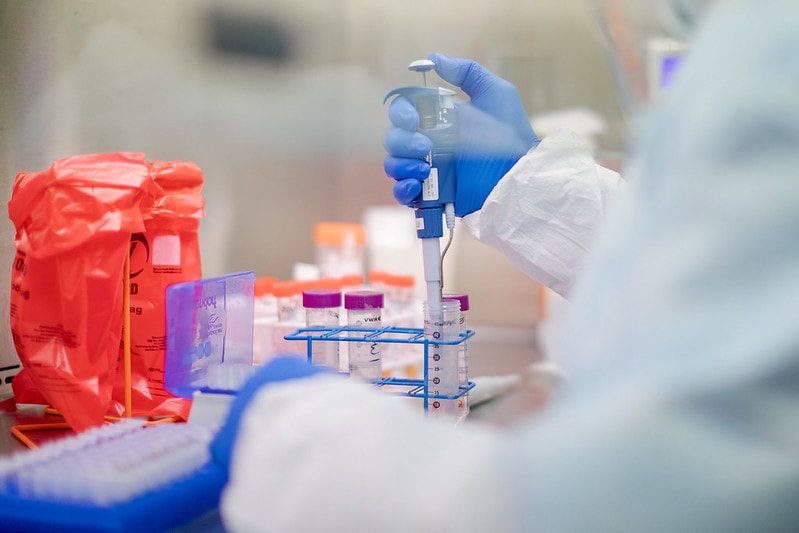
Scientists think they have discovered the cause of a rare blood clot condition caused by certain COVID-19 vaccines. An international team of researchers published their findings on Wednesday in the scientific journal Science Advances.
As mass vaccination got underway last winter, rare cases of blood clots were detected in some people who were vaccinated for COVD-19 with the Oxford-AstraZeneca and Johnson & Johnson vaccines, causing several European countries to offer younger people alternatives. The condition called vaccine-induced immune thrombotic thrombocytopenia (VITT), also known as thrombosis with thrombocytopenia syndrome (TTS) had not appeared in clinical trials. It is believed to be caused by the interaction of the vaccine molecule with a certain protein in human blood, platelet factor 4 (PF4).
“In very rare cases, the scientists suggest, the viral vector may enter the bloodstream and bind to PF4, where the immune system then views this complex as foreign. They believe this misplaced immunity could result in the release of antibodies against PF4, which bind to and activate platelets, causing them to cluster together and triggering blood clots in a very small number of people after the vaccine is administered,” a press release from the University of Cardiff stated.
Professor Alan Parker, an expert in the use of adenoviruses for medical applications from Cardiff University’s School of Medicine, also stated in the press release on the study: “VITT only happens in extremely rare cases because a chain of complex events needs to take place to trigger this ultra-rare side effect. Our data confirms PF4 can bind to adenoviruses, an important step in unravelling the mechanism underlying VITT.”
Scientists had a clue that the cause of the blood clots was certain vaccines’ adenovirus mechanism when the rare reaction was seen only in the Oxford-AstraZeneca and Johnson & Johnson vaccines but not in the Moderna and Pfizer-Biontec vaccines. The Moderna and Pfizer vaccines use mRNA technology while the Oxford-AstraZeneca vaccines are adeno-virus vaccines. In an adenovirus vaccine, a modified adenovirus—the cause of the common cold—acts as the vector for a piece of genetic material from COVID-19 to be introduced to human cells. Thanks to adenovirus, the vaccine cells bind to human cells, triggering them to reproduce a fragment of COVID-19, called a spike protein. The immune system then reacts to the spike protein, creating the antibodies that can fight actual COVID-19 in the case of infection.
The study’s first author, Dr Alexander Baker, an Honorary Research Fellow at Cardiff University, explained in the press release: “We found that ChAdOx1 has a strong negative charge. This means the viral vector can act like a magnet and attract proteins with the opposite, positive charge, like PF4.”
“We then found that PF4 is just the right size and shape that when it gets close to ChAdOx1 it could bind in between the negatively charged parts of ChAdOx1’s surface, called hexons.”
Researchers hope to use these discoveries to produce improved vaccines, the press release stated.
In the UK, 73 deaths from this rare condition have been confirmed among the millions vaccinated.
